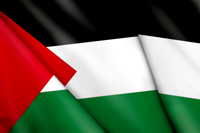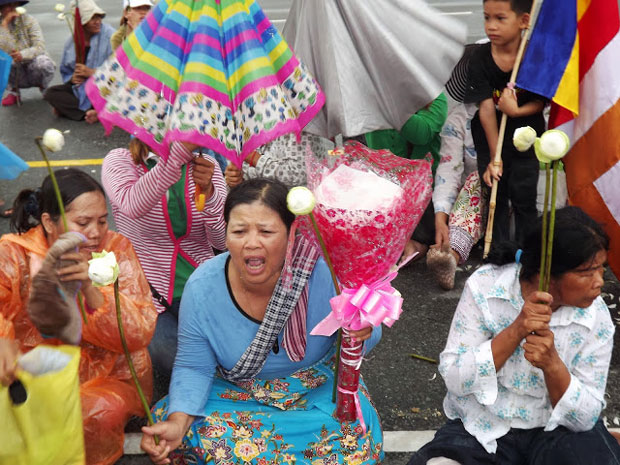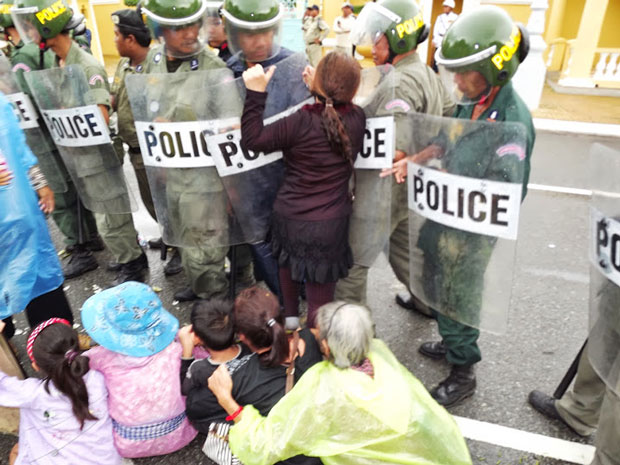Index relies entirely on the support of donors and readers to do its work.
Help us keep amplifying censored voices today.

(Photo: Shutterstock)
The internet is a vital platform for Palestinians to express themselves, but web access and targeting of social media users, bloggers and journalists remain big challenges, according to a new report from the Palestinian Center for Development and Media Freedom (MADA).
“The internet and the broad tools of communication made available by the social networks gained great importance specifically in the lives of Palestinians in Gaza, who have been under firm siege by the Israeli occupation forces since 2006, and for the Palestinian people in general due to the dispersion they have experienced since the Nakba of 1984 [sic], and now they can communicate with their relatives and friends in the different parts of the world quickly and immediately”, said Mr. Mousa Rimawi, MADA’s general director.
The report states that 67% of Palestinians polled by MADA in 2012 believe Facebook contributes to the promotion of freedom of expression.
However, the latest figures quoted show that internet penetration in Palestine is at 32.1%; 34.3% in the West Bank and 27.9% in the Gaza Strip. Lack of infrastructure due to the Israeli occupation and high service charges are the biggest blocks to access, the report finds.
The report also highlighted threats to journalists working in Palestine. Examples included the imprisonment of Al Quds TV reporter Mamdouh Hamamrah for posting an image deemed to be offensive to President Mahmoud Abbas, and the arrest of journalist Esmat Abdel Khalek for a comment she made on Facebook demanding an end to the Palestinian Authority.
“Violations against journalists and citizens simply for expressing their opinions lead to the strengthening of self-censorship, which is incompatible with the idea of having the social platforms that is suppose to make it easier for citizens and journalists to express their opinions”, said Riham Abu Aita, a MADA spokesperson.
The article was edited on 30 September at 12.00 pm to acknowledge an error in the quote from Mr. Mousa Rimawi, which gives the year of the Nakba as 1984, it took place in 1948.
Pakistani education campaigner Malala Yousafzai, who was targeted by the Taliban for fighting for girls’ education, will address the United Nations today.
The speech will be her first public appearance since the attack in October 2012. Malala, who won Index on Censorship and Doughty Street chambers Advocacy award this year, was shot in the head and chest by an unknown assailant while she was on her way home from school. The Pakistani Taliban spokesman took responsibility for the attack, saying that the young girl was “anti-Taliban and secular”.
Watch Malala’s speech live here:
At 11, Malala began blogging anonymously for BBC Urdu about living in Swat, a Taliban-controlled district in Pakistan. She eventually became an outspoken advocate for girls’ education, and brought international attention to the importance of education for children. Since her attack, she has established the Malala Fund, an organisation that demands education for all.
UNESCO has called the right to education a “fundamental human right”, that serves as a foundation for all other rights, including freedom of expression. With 200 million children denied the basic right to an education around the world, Malala’s fight is important now more than ever.
Malala’s father, Ziauddin Yousafzai, accepted the Index award on his daughter’s behalf saying: “I want to give a message to the world. I didn’t do anything special. As a father, I did one thing, I gave her the right of freedom of expression. All fathers and mothers, give your daughters and sons freedom of expression. Freedom of expression is a most important right. The solution of any conflict is to say the right thing, to speak the truth.”
Listen to what Malala’s father had to say at this year’s Index awards:
Freedom of expression is a universal, fundamental human right. But who actually has access to free expression? Index CEO Kirsty Hughes looks at the evidence.
One approach could be to count the number of democracies in the world, and their populations, and call that a rough estimate of people who can exercise their right to free speech today. But in many democracies, freedom of expression is constrained in many ways — from hate speech and criminal defamation laws to public order and security constraints to obscenity laws. Many of those constraints, such as laws in the UK and India that criminalise offensive speech online, go too far. And many democracies are flawed — through corruption, inadequate press freedom, and poor defence of, or excessive constraints on, rights and freedoms more generally.
The recent Economist Intelligence Unit’s (EIU) 2012 Democracy Index tells us that nearly half the world’s population live in “full” or “flawed” democracies, suggesting billions of us are enjoying freedom of expression to a considerable extent. That leaves the other half of the world’s population living in what the EIU calls “hybrid” or authoritarian regimes. Of this number, 2.6bn live in authoritarian regimes, with China accounting for almost half this figure.
With freedom of expression deteriorating in “hybrid” regimes such as Turkey and Russia, and with over half the European Union’s member states falling into the “flawed” category, this is not a reassuring global picture. EU member states are meant to achieve a decent standard of democracy and respect for rights even before they join the union, but the 14 out of 27 EU states that are categorised as “flawed” not only include many of the central and east European countries that joined the EU in 2004, but also Greece, France and Italy. Overall, democracy worldwide was at a standstill in 2012 compared to the year before, neither better nor worse.
FROM INDEX ON CENSORSHIP MAGAZINE
The multipolar challenge to free expression | News in monochrome: Journalism in India | Censorship: The problem child of Burma’s dictatorship
This article appears in the current issue of Index on Censorship, available now. For subscription options and to download the app for your iPhone/iPad, click here.
INDEX EVENTS
18 July New World (Dis)Order: What do Turkey, Russia and Brazil tell us about freedom and rights?
But the detail is more alarming, from repression in the Middle East and loss of trust in European political leaders to polarisation in the US. One classic barrier to being able to “seek, receive and impart information and ideas through any media,” as Article 19 of the Universal Declaration of Human Rights describes the right to free expression, is illiteracy. About one quarter of India’s population is illiterate, and this includes an astounding one third of all Indian women. This means hundreds of millions of people cannot read or write and are, as a result, unable to gain access to ideas, arguments or debates.
This is not just a problem for countries where poverty and illiteracy go hand in hand. In the UK, up to one fifth of the adult population, around 6 to 8m people, are estimated to be “functionally illiterate”, lacking the basic reading and writing skills necessary to participate effectively in society. One estimate puts the functionally illiterate in the US at 30m. And what about access to the arts or the internet? Because of poverty, people in both rich and poorer societies are being excluded from accessing vital information.
Many people in apparently free societies face discrimination. Cultural boundaries, religious controls, caste, class, age, disability, sexual orientation and gender can all have an impact on people’s ability to express their views in public fora. So when we ask who has access to freedom of expression in today’s world, the answer is not simply “not enough people” or “only half the world”. It’s a fact that, around the world, only a minority fully enjoy and are able to practise their right to free expression. So it’s something we have to change, not least in democracies where governments and elites presume or pronounce, often incorrectly, that their population already enjoys that right.

Protesters — mostly women and children — called for the release of activist Yorm Bopha outside the Royal Palace before being victimised by the police. (Photos: Marek Marczynski / Index on Censorship)
In Phnom Penh, Cambodia, for the IFEX General Meeting and Strategy Conference 2013, Index Director of Campaigns and Policy Marek Marczynski reported back on the manhandling of protesters outside the Royal Palace.
“The use of violence against the demonstrators today was clearly disproportional and unlawful. The authorities instead of cracking down on people exercising their freedom of speech and assembly should listen to their legitimate concerns. It is disturbing that as the global civil society meets in Phnom Penh today to discuss challenges to free expression the authorities apply such brutal measures to suppress this basic right”, Marczynski said.
Here is Marczynski’s full account:
I am in Phnom Penh, where I am attending the 2013 General Meeting of IFEX (International Freedom of Expression Exchange) which is a global network of organisations working together to defend and promote freedom of expression world-wide. Today, following the morning discussions I decided to take a walk to see the Royal Palace, one of the many examples of the beautiful Khmer architecture.
As I approached the main entrance to the palace I saw a group of about 40 people chanting slogans and holding flowers. Some of them were kneeling. Most of them were women and young children. I soon realised that they were demanding release from prison of Yorm Bopha, a land rights activist.
Yorm has been detained since September 2012, allegedly in relation to planning of an assault on two men in August 2012. In December 2012, after a trial which Amnesty International described as unfair, Yorm was sentenced by the municipal court in Phnom Penh to three years in prison on charges of “international violence with aggravating circumstances”. The conviction was upheld on 14 June 2013 by the Cambodian Supreme Court but her prison sentence was reduced to two years.
Prior to her arrest, Bopha had been campaigning against forcible eviction of thousands of people from the area of Boeung Kak Lake in Phnom Penh which was leased to a private company in 2007.
Today’s protest was calling for her immediate release. The participants were holding placards with photos of Bopha who has been proclaimed a prisoner of conscience by Amnesty International.
Though the protest was peaceful, there was a large police presence on the street, which was closed to traffic. Around 100 policemen were waiting nearby.
At about 3:40pm the police began cordoning off the gathering. I could not actually understand why they were doing this as the group of women and children were not causing any problems. It was just a cheerful gathering chanting and holding flowers.
The atmosphere changed quickly. Although I don’t speak Khmer I could sense that it was tense. Soon after, the police started pushing the protesters, some of whom were still kneeling, away from the palace.
Initially the protesters did not react and stayed put. The police however quickly became violent. Some police officers started dragging the protesters and pulling their placards. One of the police officers wearing a mask was particularly violent, punching some of the women.

The violent confrontation lasted for another hour during which two women, after being pushed by the police, fainted.
For updates from #ifex13, follow @MarekMarczynski